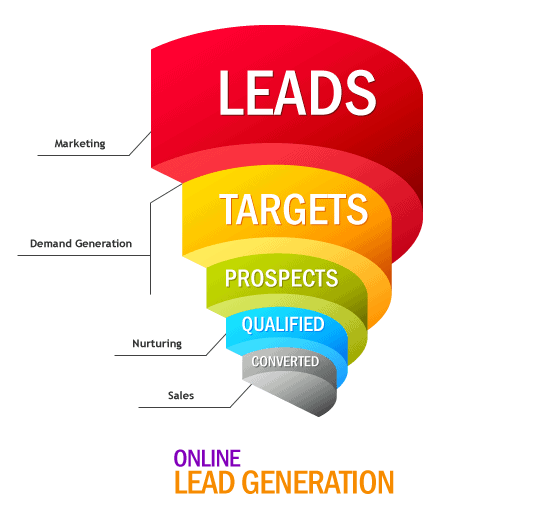Real Estate Metrics
Like in any industry in Malaysia, and especially for real estate negotiators, the only way to truly succeed is to know how your ‘success’ is measured. Most real estate negotiators fail in their first year because they are taught to sell, but not held accountable for their actual metrics and long-term performance. They don’t have a standard to measure, and without a standard, it is impossible to measure their success. They don’t measure, and they can’t improve what they don’t measure.
Just as real estate negotiators should be held accountable to real estate agencies for meeting revenue goals, agencies should also be held accountable to negotiators for helping them build their sales pipelines. When agencies direct their focus on individual accountability and revenue goals, they’ll see a big change. Accountability for revenue translates to more productive negotiators. And more productive negotiators build more successful agencies. As a real estate agency, it is your responsibility to make your negotiators accountable for meeting revenue goals and delivering high performance.
Download Now: Real Estate Marketing Plan Template [Free Access]
Here is a list of 8 important metrics that all real estate professional should always measure:

Contact Rate
Contact rate is a crucial metric for real estate agents, serving as a key indicator of their outreach effectiveness and potential for sales success. This introductory guide will delve into why contact rate matters in the real estate industry and how it can be a pivotal factor in an agent’s performance evaluation. We’ll explore how tracking the number of contacts made against the number of leads can provide valuable insights into the efficiency of communication strategies, the effectiveness of marketing efforts, and the overall responsiveness of potential clients.
Understanding and optimising contact rate helps agents refine their approach, ensuring that their time and resources are being effectively utilised to generate meaningful interactions and, ultimately, successful transactions. This metric is an essential tool for agents aiming to enhance their engagement with clients and boost their career growth in the competitive real estate landscape.
Prospecting and real estate lead generation is the core activity for all negotiators and is a clear example of one of the most powerful lead metrics in real estate. Many agencies provide a certain minimum number of prospecting calls required based on the historical number of contacts required to generate a sufficient amount of interest and to generate leads. This is most important.

Cost Per Lead (CPL)
Cost Per Lead (CPL) is an essential metric for real estate agents, offering a clear picture of the effectiveness and efficiency of their marketing strategies. In this introductory guide, we’ll explore the significance of CPL in the real estate sector and how it impacts an agent’s return on investment (ROI). Understanding CPL helps agents to evaluate the financial performance of their various marketing campaigns, from digital advertisements to open house events.
By calculating the average cost spent on acquiring a lead, agents can make informed decisions about where to allocate their marketing budget for maximum effectiveness. This metric not only aids in optimizing marketing strategies but also in fine-tuning lead generation processes, ultimately contributing to an agent’s success in the competitive world of real estate.
The simplified formula for CPL is to divide total marketing spends during a specific period by how many actual leads come in during that same period. So, let’s say your monthly ad spend was RM1,000 and you brought in 20 leads — that’s a CPL of RM50

Response Time
Responding to leads is how you develop your agency, and if leads disappear, your business does too. Failure to respond to leads in a timely manner is a major problem for many real estate negotiators. Average response time is 916 minutes (or 15.29 hours) and 47% of buyer inquiries are never responded to. If agencies and negotiators take steps to correct this problem, they are tapping into a potential gold mine of sales.

Lead Conversion to Opportunity
Frustration with online leads is increasing among real estate negotiators, and find out the cause of unconverted leads is a top priority for every agency. The way you measure and report your leads can have up to 80% or more impact on your lead conversion rate to sale. Lead generation and conversion in real estate has everything to do with knowing what is generating value and benefit for your client, this will help you direct your focus where it needs to be.

Closing Rates
Closing rates are a vital metric for real estate agents, offering a concrete measure of their success in converting leads into completed sales. In this guide, we’ll delve into the importance of understanding and analyzing closing rates for agents in the real estate industry. This metric is crucial for evaluating an agent’s effectiveness in the entire sales process, from initial contact with a client to the final transaction.
A high closing rate indicates proficiency in various aspects of the job, including client communication, negotiation skills, and understanding client needs. Monitoring and striving to improve closing rates can lead to more successful transactions, higher client satisfaction, and ultimately, a more prosperous career in real estate. For agents looking to refine their sales strategies and boost their performance, mastering the nuances of closing rates is an essential step.
When you convert those leads you’ve generated into clients, you need to know how long that whole process takes. It’s very important to track the average length of time your real estate agent’s deals take to close and see how long leads are spending in limbo statuses and where your agency’s bottlenecks issues are.

Follow Ups
Follow-ups are a critical metric for real estate agents, serving as a key indicator of their commitment to maintaining client relationships and driving sales. This guide will explore the role of follow-up activities in the real estate industry and their impact on an agent’s success. Effective follow-ups, whether after property viewings, client meetings, or networking events, are essential for keeping potential buyers engaged, addressing their concerns, and moving them closer to a transaction.
Tracking the frequency and quality of follow-ups can offer valuable insights into an agent’s customer service approach and their ability to nurture leads over time. For real estate agents, mastering the art of timely and meaningful follow-ups is not just about staying organised; it’s a strategic approach to building trust, establishing long-term client relationships, and enhancing their overall sales performance.
Follow ups are the most ignored aspect of real estate lead generation. 70% of online real estate leads report they are not followed up with effectively. Set up lead follow-up reminders through an automated CRM to ensure that your negotiators follow up with leads in a timely matter. An automated real estate lead follow-up plan can be a game changer for your agency if executed well.

Viewings Generated
Viewings Generated is a pivotal metric for real estate agents, acting as a direct indicator of market interest and the effectiveness of their property promotion strategies. This guide will explore how tracking the number of viewings generated for listings can provide crucial insights for agents. High viewing numbers typically reflect successful marketing efforts and appealing property listings, which are key components in the journey to a sale.
This metric helps agents gauge the attractiveness of their properties in the market, the impact of their advertising techniques, and the overall engagement of potential buyers. For agents aiming to refine their sales strategy and boost their effectiveness, understanding and analyzing the Viewings Generated metric is an essential aspect of their professional toolkit, directly influencing their ability to secure successful property transactions.
From prospecting and lead generation activities how many generated actual viewings? Was this % number higher or lower than your peer agents? A lower % can signal that you may require some extra training or are using the wrong technique.

Viewings per sale
This metric can be measured by how many visitors viewed a property listing before the property is sold. If tracked, this number can show whether or you are effectively qualifying buyers or effectively conducting viewings. Poor performance that is not due to the negotiator may be due to poor pricing evaluation or improper marketing of the property.
Viewings per Sale is an insightful metric for real estate agents, offering a measure of efficiency in converting potential buyer interest into actual sales. This guide will delve into the significance of this metric in evaluating an agent’s sales effectiveness. A lower number of viewings per sale indicates a high efficiency in matching the right properties with the right buyers, suggesting strong market knowledge and effective communication skills.
Conversely, a higher number requires analysis to identify potential areas for improvement in property presentation or qualification of prospects. Understanding this metric helps agents fine-tune their approach to viewings, enhance their sales techniques, and ultimately streamline the process leading to a successful transaction. For real estate professionals aiming to optimize their sales process and better meet client needs, mastering the nuances of Viewings per Sale is a valuable endeavour.
Conclusion
In conclusion, mastering these eight important real estate metrics is crucial for any property agent aiming for success in the industry. Metrics like Cost Per Lead, Closing Rates, Follow-Ups, Viewings Generated, and Viewings Per Sale provide valuable insights into an agent’s marketing effectiveness, sales proficiency, and client engagement strategies.
Understanding and analysing these metrics allows agents to make data-driven decisions, optimise their strategies, and improve their overall performance. By focusing on these key indicators, agents can enhance their ability to attract and retain clients, close sales more efficiently, and navigate the competitive landscape of the real estate market. Staying attuned to these metrics is not just about tracking numbers; it’s about evolving as a professional and ensuring a thriving, sustainable career in real estate.
Stay tuned with the realestatemy.com/blog for more up-to-date tips and guides for real estate marketing professionals.


